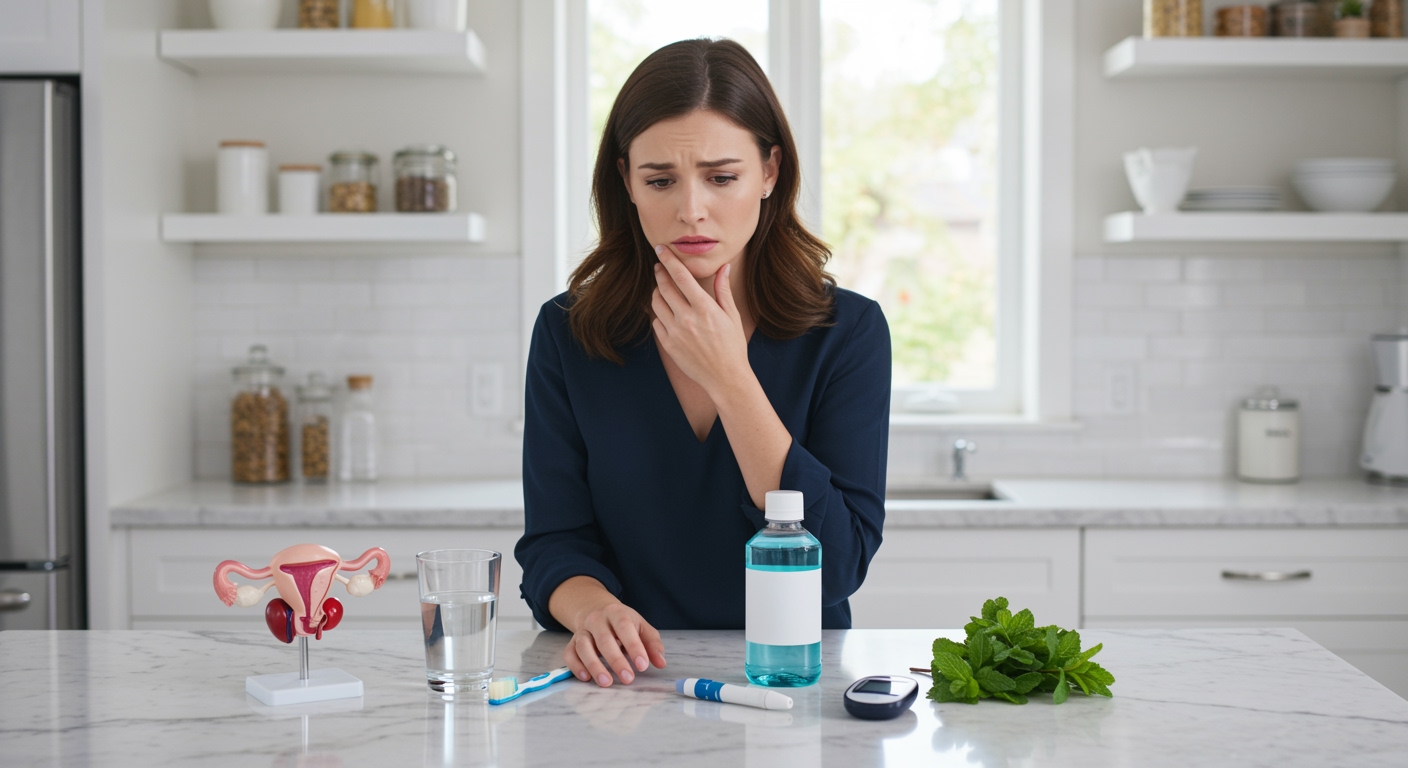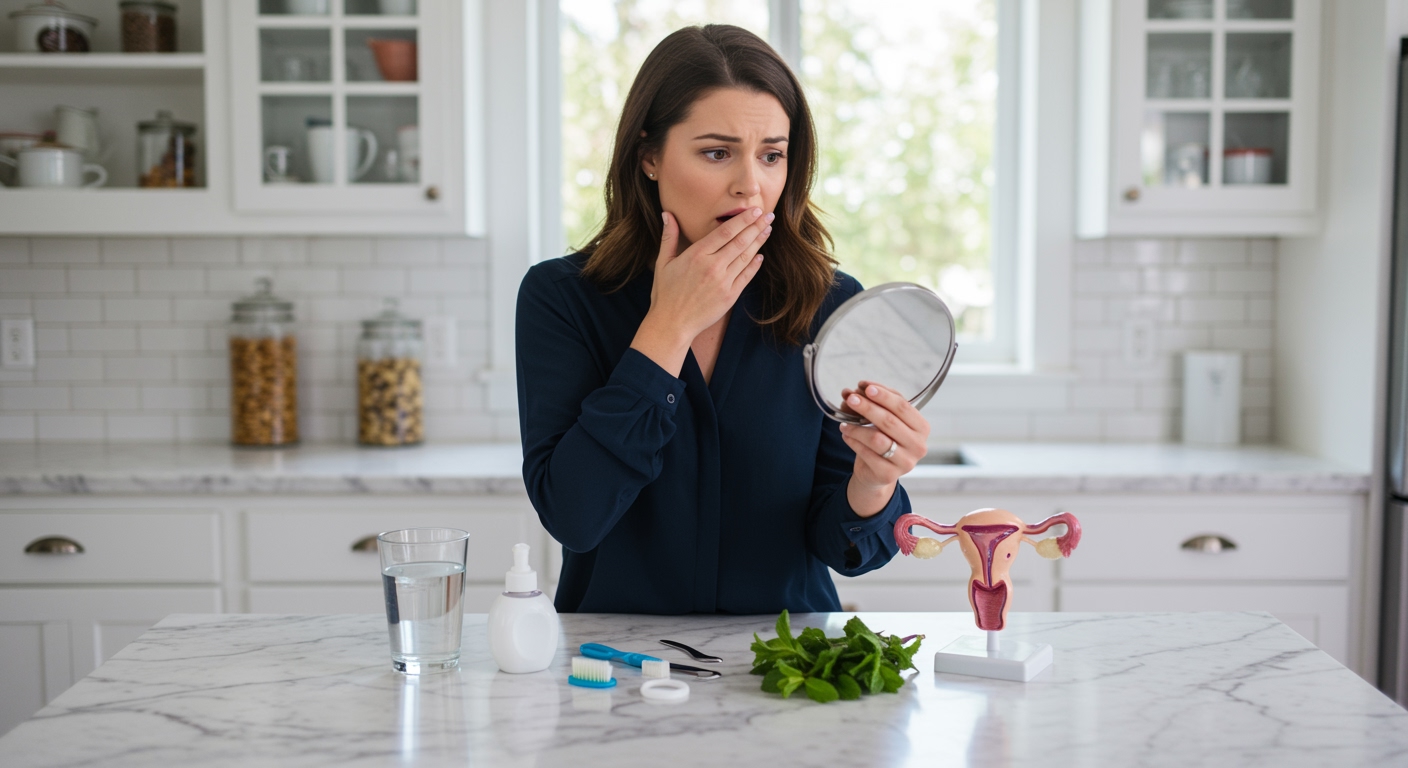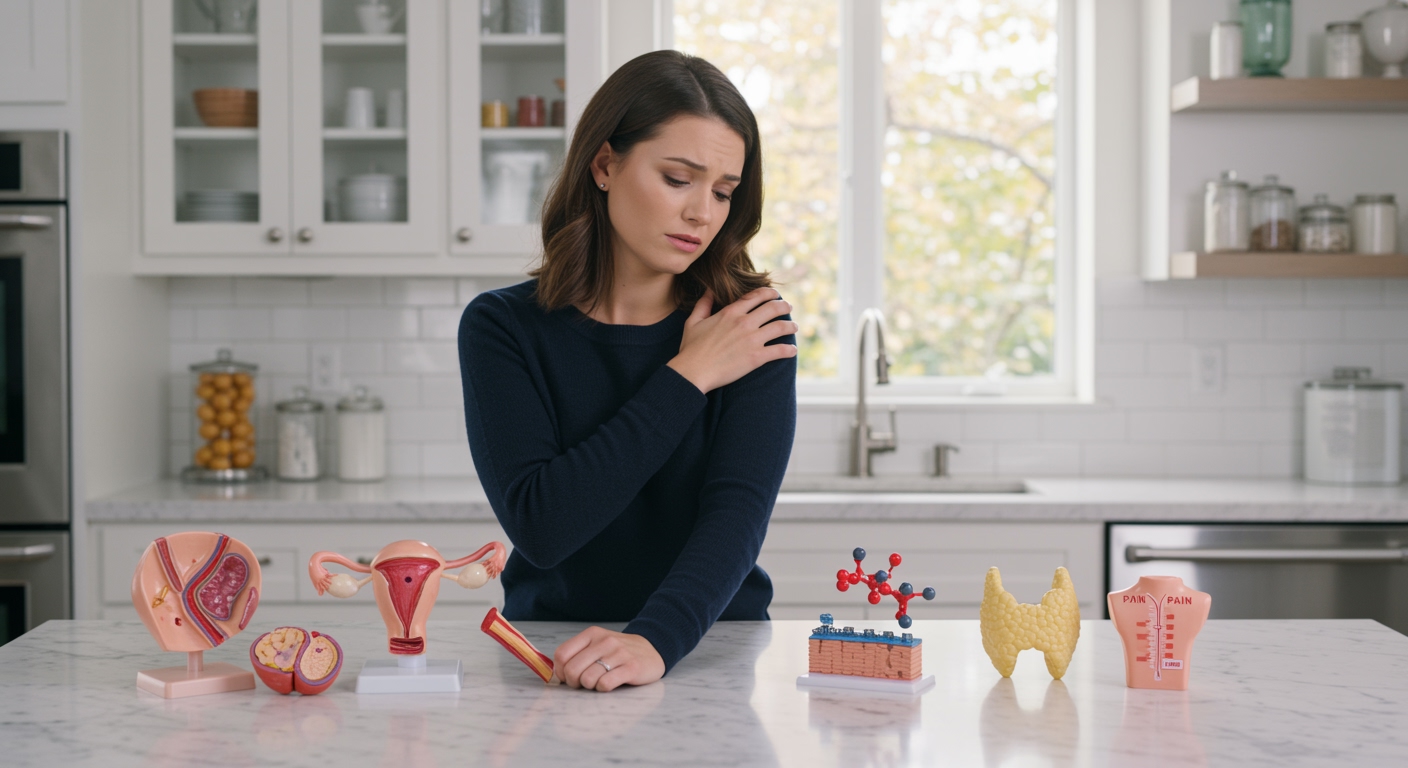✪ Key Takeaway: Dong quai shows limited scientific evidence for PCOS hormone regulation and may worsen some symptoms due to its estrogen-like effects.
Introduction
You walk into a health store and see dong quai supplements promising to fix your PCOS hormone chaos.
You might be asking this question because traditional medicine practitioners often recommend this ancient Chinese herb for female hormone issues, yet your doctor never mentioned it.
Hi, I am Abdur, your nutrition coach and today I am going to explain whether dong quai actually helps PCOS hormone regulation based on current scientific evidence.
What Is Dong Quai and How Does It Work?
Dong quai comes from the root of Angelica sinensis, a plant that grows in China, Korea, and Japan.
Traditional Chinese medicine practitioners have used this herb for over 2000 years to treat menstrual irregularities and female reproductive issues.
The herb contains compounds called phytoestrogens, which are plant chemicals that can mimic estrogen in your body.
These phytoestrogens can bind to estrogen receptors in your tissues, potentially influencing hormone activity.
Dong quai also contains ferulic acid and other compounds that may affect blood circulation and inflammation.
However, the way dong quai works in your body is complex and not fully understood by modern science.
✪ Fact: Dong quai contains over 70 different chemical compounds, making its effects on the body highly unpredictable.
Does Research Support Dong Quai for PCOS?
The scientific evidence for dong quai in PCOS treatment is extremely limited and mostly disappointing.
Most studies on dong quai focus on menopause symptoms, not PCOS hormone regulation.
A comprehensive review of herbal treatments for PCOS found insufficient evidence to recommend dong quai for hormone balance.
The few studies that exist are small, poorly designed, or combined dong quai with other herbs, making it impossible to determine its individual effects.
Even studies on menopause symptoms show mixed results, with some finding no benefit over placebo.
The lack of standardized dong quai preparations makes comparing research results nearly impossible.
Without solid scientific evidence, recommending dong quai for PCOS becomes pure speculation.
✪ Note: No major medical organization recommends dong quai as a first-line treatment for PCOS symptoms.
Could Dong Quai Make PCOS Worse?
Dong quai might actually worsen PCOS symptoms in some women due to its estrogen-like effects.
Many women with PCOS already have estrogen dominance, a condition where estrogen levels are too high relative to progesterone.
Adding more estrogen-like compounds through dong quai could tip this balance further in the wrong direction.
This hormonal imbalance might lead to heavier periods, increased PMS symptoms, and worsened insulin resistance.
Women with PCOS who have estrogen-sensitive conditions like endometriosis or fibroids should be especially cautious.
The unpredictable nature of phytoestrogens means they can act as estrogen blockers in some tissues and estrogen promoters in others.
This dual action makes it impossible to predict how dong quai will affect your individual hormone balance.
✪ Pro Tip: Always test your hormone levels before adding any phytoestrogen supplements to understand your baseline.
What Are the Risks and Side Effects?
Dong quai carries several serious risks that many people overlook when considering it for PCOS.
The herb can increase your skin sensitivity to sunlight, leading to severe sunburns and skin damage.
Dong quai acts as a blood thinner, which can be dangerous if you take anticoagulant medications or have bleeding disorders.
Some women experience digestive upset, including nausea, bloating, and diarrhea when taking dong quai.
The herb can interact with birth control pills, potentially reducing their effectiveness.
Pregnant and breastfeeding women should avoid dong quai completely due to potential risks to the baby.
The lack of quality control in herbal supplements means you might get contaminated or mislabeled products.
✪ Fact: The FDA does not regulate herbal supplements the same way as prescription medications, increasing safety risks.
What Works Better Than Dong Quai for PCOS?
Evidence-based treatments for PCOS hormone regulation are far more effective than unproven herbs like dong quai.
Inositol supplements have strong scientific support for improving insulin sensitivity and hormone balance in PCOS.
A low-glycemic diet combined with regular exercise shows consistent results for managing PCOS symptoms.
Spearmint tea has research backing its ability to reduce excess androgens in women with PCOS.
Omega-3 fatty acids from fish oil can help reduce inflammation and improve hormone balance.
Working with a healthcare provider to address insulin resistance through medication or lifestyle changes produces measurable results.
These evidence-based approaches have predictable effects and established safety profiles unlike dong quai.
✪ Pro Tip: Focus your energy and money on treatments with solid scientific evidence rather than chasing unproven remedies.
The Bottom Line
Dong quai lacks sufficient scientific evidence to support its use for PCOS hormone regulation and may actually worsen symptoms in some women.
Hope without evidence is just expensive wishful thinking, and your health deserves better than guesswork.
I would love to hear your thoughts on this topic or answer any questions you might have about evidence-based PCOS management in the comments below.
References
At NutritionCrown, we use quality and credible sources to ensure our content is accurate and trustworthy. Below are the sources referenced in writing this article:
- PMC: Herbal Medicine for the Management of Polycystic Ovary Syndrome
- Frontiers in Endocrinology: Traditional Chinese Medicine for Polycystic Ovary Syndrome
- PMC: Natural Products for the Treatment of PCOS
- Medical News Today: Dong Quai: Benefits, Side Effects, and Dosage





